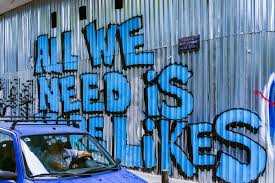If you work in the media industry, you know the power of social media. Both the positive power as well as the negative. Need proof? Read the comments from any recent media post regarding politics, the global pandemic and/or civil unrest. BREAKING NEWS: People are extremely passionate regarding their views. Beware, beware, beware. If you choose to post or comment about these topics today, you are entering an incendiary debate with little to no chance of changing a single mind. Think about it. How many comments/responses within a social media post have you seen which read something like this: “I understand your stance on this issue, appreciate your point of view, and will consider changing or have changed my mind.” Anyone? Most likely not. Empathy, it seems, is a lost art. So, be very wary while wading into these explosive, passionate hotbed issues. Your current job and your entire career may just depend on it.

Yes, jobs are being lost due to social media posts. Posts which seemed like a such a great idea at the time of the ill-fated send/tweet/retweet/share/post/comment/etc. decision. And yes, jobs within the media/entertainment industry. A writer from a “Law & Order” spin-off. A play-by-play broadcaster for the NBA’s Sacramento Kings. And yes, even senior leadership within local broadcast television stations. What seemed to be a good idea at the time could come back to haunt you. Witty? Funny? A chance to go “viral”? Or, perhaps just poor judgement and/or bad taste. Again, think about it. We are a nation completely divided. If you decide to post or comment on one of these topics, chances are extremely high it may/will offend either 49.9% or 50.1% of the U.S. population.
Ill-fated social media-based firings are not just for the media industry or the prominent. All business lines are being affected. Yes, employers are firing people fairly immediately for online politically incorrect posts in recent days/weeks/months. The Principal Trombonist from the Austin Symphony Orchestra was let go after a string of what were deemed to be inappropriate Facebook comments regarding protesters.

The personal social media accounts of police officers are very much under increased scrutiny. A Denver officer was fired recently for writing what was deemed to be an incendiary comment within a caption to an Instagram picture of himself and two fellow officers smiling in riot gear. Another officer in Fulton, New York, was fired for an Instagram post. And, so on…
Again, think about these tense subjects. To kneel or not to kneel. Colin Kaepernick. Good cops versus bad cops. Police tactics. Choke holds. Defund and/or dismantle police departments. Peaceful protests versus rioting. Autonomous zones. Black Lives Matter. All Lives Matter. President Trump’s photo op. Or, his Twitter account. Social distancing. Mask or no mask. Quarantine or open everything. Bubba Wallace. NASCAR. Confederate flag or not. Noose or no noose in the garage stall picture. Statues or no statues. Liberal versus Conservative. Left versus Right. Passionate. Explosive. Everyone has an opinion. And again, you will not change a single mind by posting anything even remotely touching these subjects. The tense environment of protests against racism and police brutality within the backdrop of the global pandemic has made Facebook, Twitter and Instagram especially dangerous for those who want to remain employed.

So, why go there? In a word: Dopamine. Neuroscientists are studying the effects of social media on the brain and finding that positive interactions (such as someone “liking” your post) trigger the same kind of chemical reaction that is caused by gambling and recreational drugs. According to an article by Harvard University researcher Trevor Haynes, when you receive a notification from social media, your brain sends a chemical messenger called dopamine along a reward pathway, making you feel good. This chemical is associated with common things like food, exercise, love, sex, gambling, drugs…and now, social media. Just like a gambling or substance addiction, social media addiction involves broken reward pathways in our brains. Social media provides immediate rewards — in the form of attention from your network — for minimal effort through a quick finger tap. Therefore, the brain rewires itself, making you desire likes, retweets, emoji applause and so on. According to TED, 5-10% of internet users are psychologically addicted and can’t control how much time they spend online. Brain scans of social media addicts are similar to those of drug-dependent brains: There is a clear change in the regions of the brain that control emotions, attention and decision making.

So, what now? Where is the line? What is the line? Is the line a continuously moving target in today’s immediate gratification society? Say nothing? Say everything? It is so easy to just vent and express emotion. Is this wrong? Who is the judge and jury? Fortunately, or unfortunately, your employer. Especially if you work in the media/entertainment industry, public office, or public service. Moderate. Think before you post. Educate yourself on the issues. Perhaps remember to listen with empathy at times. Strongly suggest to your network the need to vote in every single election. And, trust your gut instinct. If your inner common sense voice is whispering or screaming that hitting send may be a bad idea, listen to it. And, perhaps get a second opinion from a friend or family member before blasting it out for all to see. Yes, you can delete a post. Even quickly. However, screenshots, Google searches, and word of mouth within a very small professional industry are forever. Are “likes” worth your career?

About the Author:
Ty Carver has over 30 years of recruiting, HR management, sales, and leadership experience…including the last 10 specific to the broadcast media industry. He is the Founder/CEO of Carver Talent, a local broadcast media management recruiting firm. As the former Director of Recruiting for Raycom Media, he has deep industry relationships. Have a media corporate executive or television station management recruiting need? Contact [email protected] for more information.

